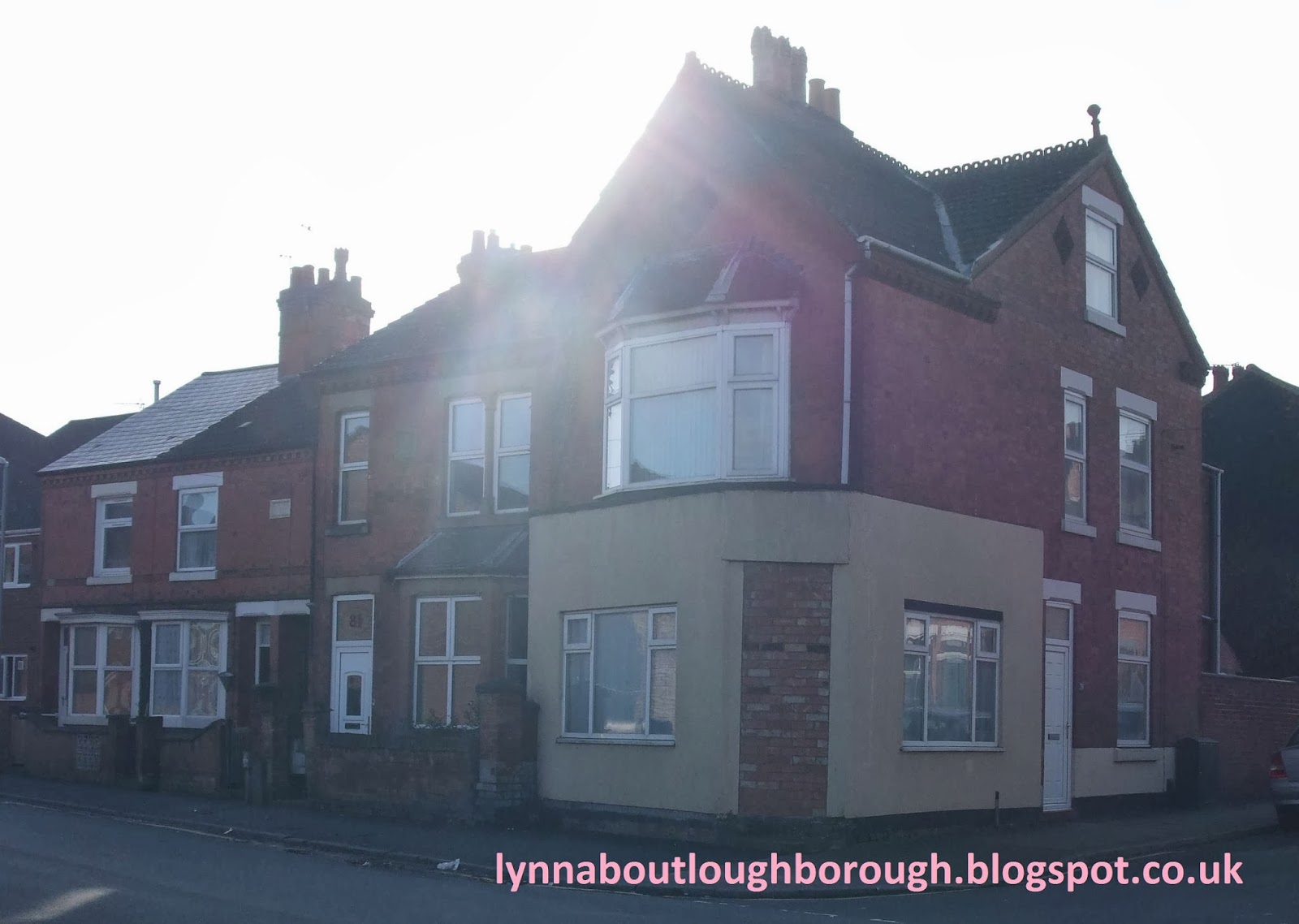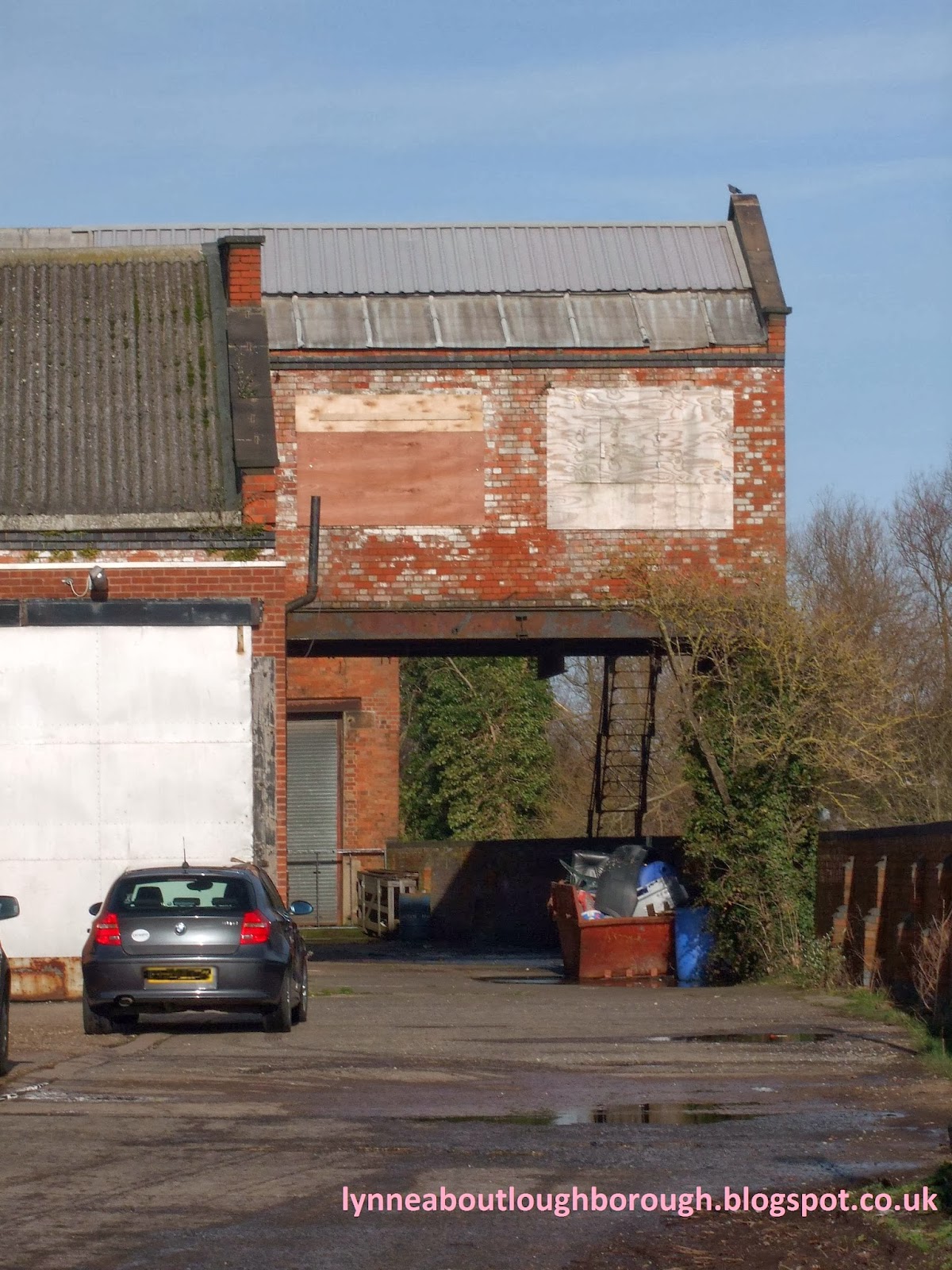Before I tell you about the Zeppelin raids in Loughborough,
a quick update on a number of things I’ve mentioned in the past.
The first of these is to report that according to the local
newspaper, The Loughborough Echo, the local plan, or the “core strategy” as it
is known, submitted by Charnwood District Council which outlines their proposed
housing development plans, has not been accepted by the government planning
inspector. The inspector has identified what he calls “significant issues” and
he has asked for a hearing in March.
Next, I’m sure you’ll all be pleased to learn that
Loughborough is, for the second time, representing the East Midlands, as a
finalist in the “In Bloom” competition, in which we were chosen from over 1000
entrants. We are in the “small city” category and will be competing against
seven other finalists, which includes Bath and Tamworth.
I think I may have mentioned before that the National Trust
have bought Stoneywell Cottage, the former home of members of the Gimson family.
The NT had fairly modest plans for the cottage and stables in order to open to
the public, but they have just put in revised plans for work on the stables. I
believe they are hoping to open to the public during the summer season this
year.
The bid to the heritage Lottery Fund for moving the WW1
memorials in All Saints Church, to a more prominent position has now been
submitted. Don’t forget, there is a community consultation meeting on Saturday
8th Feb, at 7.30 in the church, so do go along and share your views
and ideas with the organisers.
Finally, I recently discovered the Carillon newsletter,
appropriately named the Carillon Chimes, on the web and so got in touch with
Mel Gould, the curator of the Carillon Museum, to ask if he could include me in
his mailing list. Many thanks to him, because not only did he put me on the
mailing list for the newsletter, but he also mentioned this blog in the latest
issue.
Now, moving on …
Zeppelin Walk
 |
| Being tour guides! |
My good friend, and fellow tour guide, Bob, invited me along
to his latest walk – a voyage of discovery of the sites in Loughborough that
were bombed by the Zeppelin, on 31 January 1916. Twenty-four of us gathered
inside the Carillon, which Mel had kindly opened for us, and had a look at some
medals, photos and plaques, before we all, including Mel, headed off to look at
the actual sites.
 |
| Side view of the old Crown and Cushion pub |
We walked down Frederick Street, where Bob explained how
Herbert Schofield installed an electrical generator in one of the college
buildings, before walking down past the site of the former Crown and Cushion,
now Peters, where the first Zeppelin bomb fell in the garden of a house in
Orchard Street which backed onto the pub.
 |
| The granite cross in the middle of The Rushes |
Then, we headed down Greenclose Lane, taking in the site of
the former gas works on our left, and reached the Rushes. From the Rushes
shopping centre side of the road we could see the wooden plaque on the
shopfront where the brass memorial plaque, now in the Carillon Museum, was
originally placed.
 |
| The granite cross in The Rushes |
 |
| The wooden mounting board |
It being a busy Saturday afternoon we decided not to risk our
lives and go and stand in the middle of the road, so it was lucky that we were
just about able, from the roadside, to make out the granite cross in the
tarmac, which marks the actual spot where the bomb hit.
.JPG) |
| Medieval Loughborough |
The site of the next Zeppelin bomb was quite some way away,
so we passed through the old medieval town, down Nottingham Road, crossed over
to Queen’s Road, before landing at Empress Road where Queen’s Road turns into
Wharncliffe Road. The longish walk was an opportunity to chat to some of the
other people on the walk, and I met some very interesting people, as well as
people I’ve known for a long time, and other people I recognised.
When we reached Empress Road Bob explained that there had
been warnings that Zeppelins were on their way, heading from the east coast.
Leicester, Nottingham and Derby had gone into blackout mode, but, apparently,
parts of Loughborough were of the thinking that raids had never come that far
inland before, so probably wouldn’t today, and as a result, blackout guidelines
were not much observed (except by the Brush) thereby making Loughborough a real
target.
On the outside wall of what was the Herbert Morris factory
(called the Empress Works, or the East Works) there was a plaque, commemorating
the Zeppelin raid in Empress Road which killed a mother and her children - the
original plaque is in the Carillon Museum – and there is a granite cross in the
road, close to the pavement, which marks the spot at which the bomb fell.
 |
| No.83 next to corner house, door not visible |
Number 83 Empress Road was so close to the bomb it’s surprising the house
wasn’t damaged, but the only evidence of the attack was shrapnel marks in the
side wall of the house.
A selection of views of the Empress Works


Whilst we were looking at the cross, the lady who lived in
number 83 actually came out and regaled us with a few stories and memories of
the event. She wasn’t old enough to have been around at the time, but had
spoken of the event with older members of her family. Quite fascinating!
Leaving Empress Road, we made our way back to town and
Queen’s Park, via the Great Central Railway, at which point I had to leave the
walk as I had another event to attend.
Bob did a great job of showing us parts of Loughborough we
were probably less familiar with, and of telling us stories about the day of
the Zeppelin raid. I’m sure this is only the first of his WW1-themed walks, so
if you missed this one, keep on eye on the local paper for news of his next
one.











No comments:
Post a Comment
If you have found this post interesting or have any questions about any of the information in it do please leave a comment below. In order to answer your question, I must publish your query here, and then respond to it here. If your information is private or sensitive, and you don't wish to have it on public display, it might be a better idea to email me using the address which is on the About Me page, using the usual substitutions: if you take the email route, our conversation remains private, and is not published on the blog. Thanks for reading the blog.